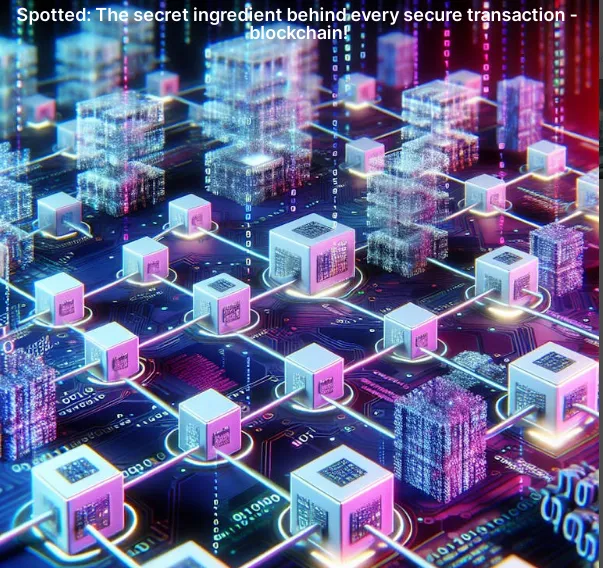Blockchain technology behind Bitcoin is transforming the modern world in remarkable ways.
Table of Contents
1. Blockchain is reshaping the financial industry by providing a secure and transparent platform for conducting transactions without the need for intermediaries. This eliminates delays, reduces costs, and ensures greater trust between parties.
2. Blockchain is revolutionizing supply chain management by enabling real-time tracking of goods from production to delivery. This increased transparency helps in reducing fraud, ensuring authenticity, and improving efficiency across industries. Companies can now verify the origins of products and monitor their journey with unprecedented accuracy.
3. blockchain is disrupting the healthcare sector by streamlining data management processes and enhancing patient privacy through decentralized systems.
Medical records can be securely stored on a blockchain network, allowing for easy access by authorized personnel while maintaining confidentiality.
This transformation paves the way for more efficient health services and better patient outcomes.

Exploring the Potential of Blockchain Technology
Blockchain technology has the potential to revolutionize various industries by providing a secure and transparent way to record and verify transactions.
This technology uses a decentralized network to store data in a series of blocks, which are linked together and secured using cryptography.
By eliminating the need for intermediaries, blockchain can reduce costs and increase efficiency in processes such as supply chain management, financial transactions, and data sharing.
Additionally, the immutability of blockchain ensures that data cannot be altered or tampered with, enhancing trust and security in transactions.
As more industries adopt blockchain technology, the possibilities for innovation and disruption are endless.
Interesting Blockchain Projects
Blockchain technology has gained significant attention in recent years due to its potential to revolutionize various industries.
Numerous interesting blockchain projects have emerged, showcasing the versatility and innovation of this technology.
One notable blockchain project is Ethereum, which enables the creation of decentralized applications (DApps) and smart contracts.
This has opened up new possibilities for developers and entrepreneurs to build decentralized platforms and services.
Another interesting project is Ripple, which focuses on facilitating fast and low-cost international money transfers.
By leveraging blockchain technology, Ripple aims to disrupt the traditional banking system and provide a more efficient way of sending and receiving funds globally.

Blockchain Use Cases by Industry
Blockchain technology has the potential to transform various industries, including finance, supply chain, healthcare, and more.
In the finance industry, blockchain can be used for secure and transparent transactions, eliminating the need for intermediaries and reducing costs.
It also enables the creation of new financial instruments and decentralized lending platforms.
In the supply chain industry, blockchain can enhance traceability and transparency, ensuring the authenticity and provenance of products. This can help in combating counterfeit goods and improving supply chain efficiency.
In the healthcare industry, blockchain can improve the security and privacy of patient data, facilitate interoperability between different healthcare providers, and enable secure sharing of medical records.
In Which Areas Can Blockchain Not be Utilized?
While blockchain technology has vast potential, there are certain areas where it may not be the most suitable solution.
For example, blockchain may not be well-suited for applications that require real-time processing and high throughput, as it currently has limitations in terms of scalability.
Additionally, industries that heavily rely on centralized control and trust may not see immediate benefits from blockchain implementation.
It is important to carefully assess the specific requirements and limitations of each use case before deciding to adopt blockchain technology.
How is Blockchain Useful?
Blockchain technology offers several key benefits:
1. Transparency: Blockchain provides a transparent and immutable record of transactions, enhancing trust and accountability.
2. Security: Blockchain uses cryptographic algorithms to secure data, making it highly resistant to tampering and fraud.
3. Efficiency: By removing intermediaries and automating processes, blockchain can streamline operations and reduce costs.
4. Decentralization: Blockchain enables peer-to-peer transactions and eliminates the need for centralized control, fostering a more democratic and inclusive ecosystem.
How Can Blockchain be Used in Business?
Blockchain can be used in various ways to transform business processes:
1. Supply chain management: Blockchain can improve traceability, reduce fraud, and enhance transparency in supply chain operations.
2. Digital identity verification: Blockchain can provide a secure and decentralized way of verifying identities, reducing the risk of identity theft and fraud.
3. Smart contracts: Blockchain enables the execution of self-executing contracts, automating business agreements and reducing the need for intermediaries.
4. Tokenization: Blockchain can enable the creation and management of digital assets, allowing businesses to tokenize physical assets and facilitate new forms of value exchange.
Overall, blockchain technology has the potential to revolutionize various industries and bring about new opportunities for innovation and efficiency.

In conclusion, blockchain technology has the potential to significantly enhance cybersecurity and identity management. Its decentralized and immutable nature, combined with cryptographic algorithms and secure communication protocols, make it highly resistant to hacking and tampering.
By providing individuals with self-sovereign identities and enabling them to have control over their personal data, blockchain-based solutions can revolutionize the way we manage cybersecurity and identity in the digital age.





